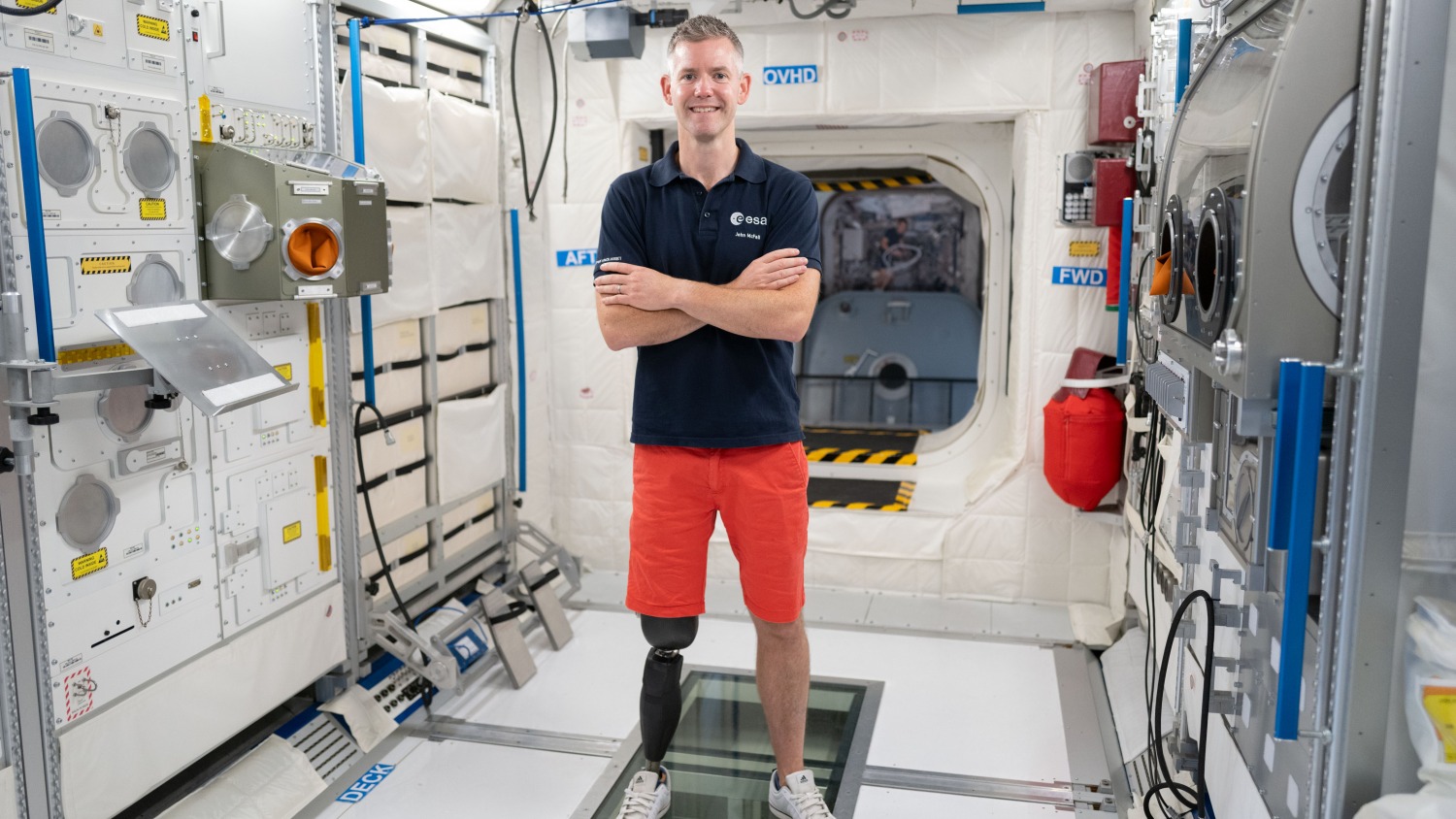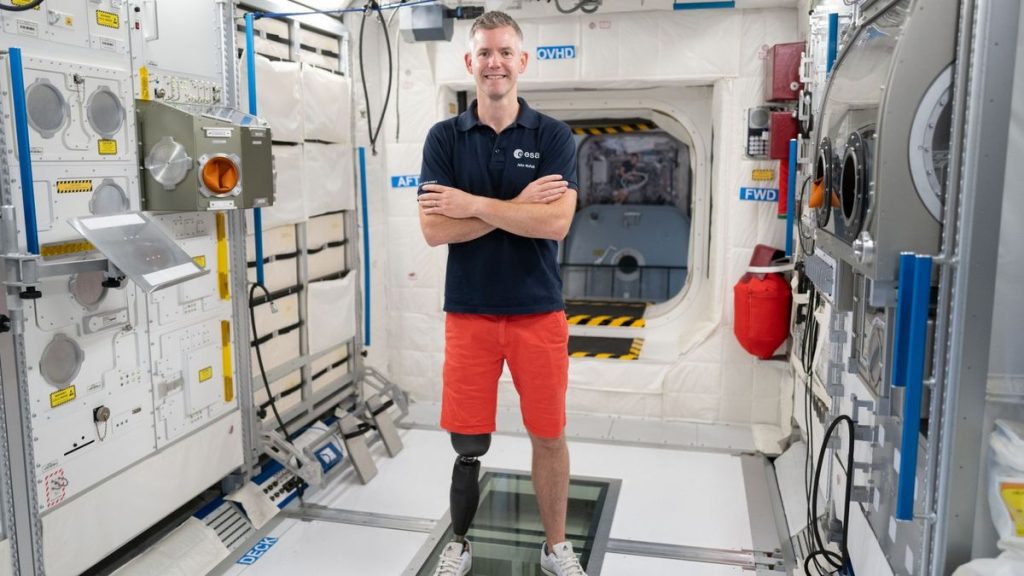
This astronaut won’t be letting his prosthetic leg ground him to the confines of Earth.
European Space Agency (ESA) reserve astronaut John McFall has just become the first person with a physical disability to be medically certified to launch on a long-duration mission to the International Space Station (ISS). The surgeon and former Paralympian took part in a study to demonstrate the feasibility of the flight, which recently concluded.
McFall was selected for ESA’s Fly! Feasibility study in 2022, which aimed to demonstrate the technical viability of flying someone with a disability in space. Now that the study has concluded, McFall and the UK Space Agency are cheering him on toward his next steps: Fly! Mission Ready.
McFall lost his leg when he was 19, as a result of a motorcycle accident. Since then, he’s never considered himself a “passive amputee,” he previously told Space.com. He won a bronze medal in the 100-meter sprint during the 2008 Paralympics, and has earned a master’s degree in biomechanics and gait analysis.
“I’m quite involved in my care. I know how my prosthesis works. I’m a technology demonstrator,” McFall said.
Liz Johns, Interim Head of Space Exploration at the UK Space Agency, praised McFall for the milestone in a statement, saying, “it is fantastic to see that John and the team at ESA have proved it is technically possible for someone with a physical disability like his to live and work on the International Space Station. ”
Fly! Mission Ready, the next phase of the study, consists of three main components — the types of science that could be conducted during McFall’s mission, final qualification of his prosthetics, and a final medical certification. In the statement, McFall hailed the certification as “a really important milestone in the history of human spaceflight.”
Breaking space news, the latest updates on rocket launches, skywatching events and more!
“It’s great that we can say after a huge amount of work in the last 18 months that we have demonstrated that it’s technically possible for someone with a disability like mine to fly on a long duration mission,” McFall said.
McFall was selected as a reserve astronaut after a call for para-astronaut candidates was issued at the end of Phase 1 of the Fly! study, in 2022. The study was initiated jointly by ESA and NASA, and determined to focus the beginnings of their research on lower limb disabilities.
“The Mission Ready phase is an important step in moving forward to realize a potential flight opportunity. This phase will include looking at hardware certification and moving further down that process … should I get the opportunity to fly and importantly we’re looking towards medical certification for me to fly on a long duration mission,” he added.
McFall does not yet have a mission assignment or timeline for when a potential launch might take place, but hopes to make it on the manifest before the ISS is decommissioned sometime after 2030.








